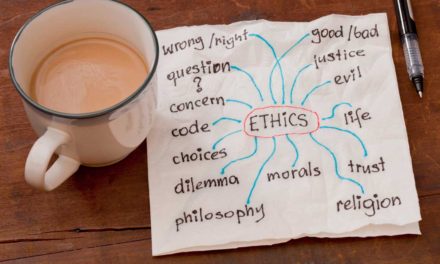“One must use a brazen lie to convince people of a reality of a higher and deeper order.”
Jean Cocteau
Over the course of the last thirty years, I’ve written many pieces about truth. Truth in law. Truth in court. Truth by logical argument. Plain truth. Honest truth. The truth, the whole truth, nothing but the truth, so help me God truth. Universally accepted truth. Arguable truth. Truism. Candor. Honest truth. Veracity. Verity. Perjury. I’m a lawyer and see truth as fundamental to my relationship with clients, courts, adversaries, and the American civil and criminal justice systems. If there is no truth in law, in courts, in statements about clients, or about courts, then the rule of law is at risk, America is at risk now, and democracy is now up for sale.
It was a surprise to hear another lawyer recently say, “Truth Isn’t Truth.” He said it on national television. Without blinking. Once uttered, given the national prominence of the lawyer and his client, the political world erupted.
To walk back the utter profanity of “truth isn’t truth,” the lawyer later explained that he was merely referring to instances where two people make “contradictory” statements. That happens—every day—in court—out of court—and often in TV interviews. Someone calls someone else into question, disputes a statement, a fact, an event, or simply misspeaks. But “contradictory” has a deeper meaning. It means against, antagonistic, opposite, polar, reverse. You can’t explain away, or clarify “truth isn’t truth,” by recasting it as “contradictory.” The issue here is not diction. It’s ethics. No one should say or write anything for public consumption that promotes lying. It’s especially unsettling that a public citizen, a lawyer by training, would so dismiss moral truth by proclaiming “truth isn’t truth.” That statement is unethical. By suggesting or implying that the client may lie, and defend him as merely contradictory, is best met head-on. It demeans the profession to justify it by calling it merely contradictory. Giants of the legal profession know better.
“The press was protected so that it could bare the secrets of the government and inform the people. Only a free and unrestrained press can effectively expose deception in government. And paramount among the responsibilities of a free press is the duty to prevent any part of the government from deceiving the people.” Justice Hugo Black. Associate Justice—The United States Supreme Court.[1]
“Facts are stubborn things; and whatever may be our wishes, our inclinations, or the dictates of our passions, they cannot alter the state of facts and evidence.”[2] President John Adams.
“Behind every argument is someone’s ignorance.”[3] Associate Justice Louis Brandeis, United States Supreme Court.
As far as I can tell, no other lawyer representing a high government official has ever offered “truth isn’t truth” as a defense to anything. Before the lawyer in question said truth isn’t truth, the phrase itself didn’t exist. But now, it does. A Google search for that exact phrase— “truth isn’t truth”—three days after he said it, produced 594,000,000 hits. That’s what happens when you make something up that no one else ever thought of.
“Throughout history, humans have always indulged in certain irrationalities and held some fairly wrong-headed beliefs. But in his newest book, philosopher Lee McIntyre[4] shows how we’ve now reached a watershed moment for ignorance in the modern era, due to the volume of misinformation, the speed with which it can be digitally disseminated, and the savvy exploitation of our cognitive weaknesses by those who wish to advance their ideological agendas. In Respecting Truth: Willful Ignorance in the Internet Age, McIntyre issues a call to fight back against this slide into the witless abyss. In the tradition of Galileo, Professor McIntyre champions the importance of using tested scientific methods for arriving at true beliefs, and shows how our future survival is dependent on a more widespread, reasonable world.”[5]
The setting for the absurd claim—truth isn’t truth—was a Sunday morning political talk show. The conversation leading to the absurd claim was about facts. Giving the political excitement surrounding that particular Sunday Morning talk show, perhaps the lawyer meant fact when he said truth. If that’s the case, then we need a clear difference between a fact and a truth. They are closely defined. Facts exists. They are present in reality. They can be seen visually, are verifiable, and objective, not subjective. It is not just something that you believe. Believing something does not make it a fact. Facts can be observed empirically or by the senses. Facts can be seen and heard, as well as proven by other senses. It’s relative.
Truth is not relative. It is the true state of a certain matter—a thing—a place—a person. It is frequently what a person believes. If a person believes something is true, then it is true, at least in the mind of that person. And that is the real difference between truth and fact. Facts can answer why questions, where questions, when questions, or even how questions. Technically, truth is a state of belief. It can be changed, when true facts call for a change in belief. The bubbly lawyer, speaking for an enraged client, could have answered the question by saying, “It’s what my client believes.” Instead he blurted, “Truth isn’t truth.” His client is mighty, but there is no ethic of might makes right. As his client might have said, in all caps, “SAD.”
[1] http://www.inspirationstation.info/1-law-quotes/law-quotes.html and https://www.azquotes.com/author/1445-Hugo_Black
[2] http://www.inspirationstation.info/1-law-quotes/law-quotes.html Second President of the United States
[3] http://www.inspirationstation.info/1-law-quotes/law-quotes.html
[4] Lee C. McIntyre is a Research Fellow at the Center for Philosophy and History of Science at Boston University and an Instructor in Ethics at Harvard Extension School. He holds a B.A. in philosophy of social science from Wesleyan University and an M.A. and Ph.D. in philosophy from the University of Michigan at Ann Arbor. His dissertation was on the status of law-like explanations in the social science. https://en.wikipedia.org/wiki/Lee_C._McIntyre
[5] https://philpapers.org/rec/MCIRTW





 I am an author and a part-time lawyer with a focus on ethics and professional discipline. I teach creative writing and ethics to law students at Arizona State University.
I am an author and a part-time lawyer with a focus on ethics and professional discipline. I teach creative writing and ethics to law students at Arizona State University.  My latest novel is Hide & Be.
My latest novel is Hide & Be.  If you have an important story you want told, you can commission me to write it for you.
If you have an important story you want told, you can commission me to write it for you.